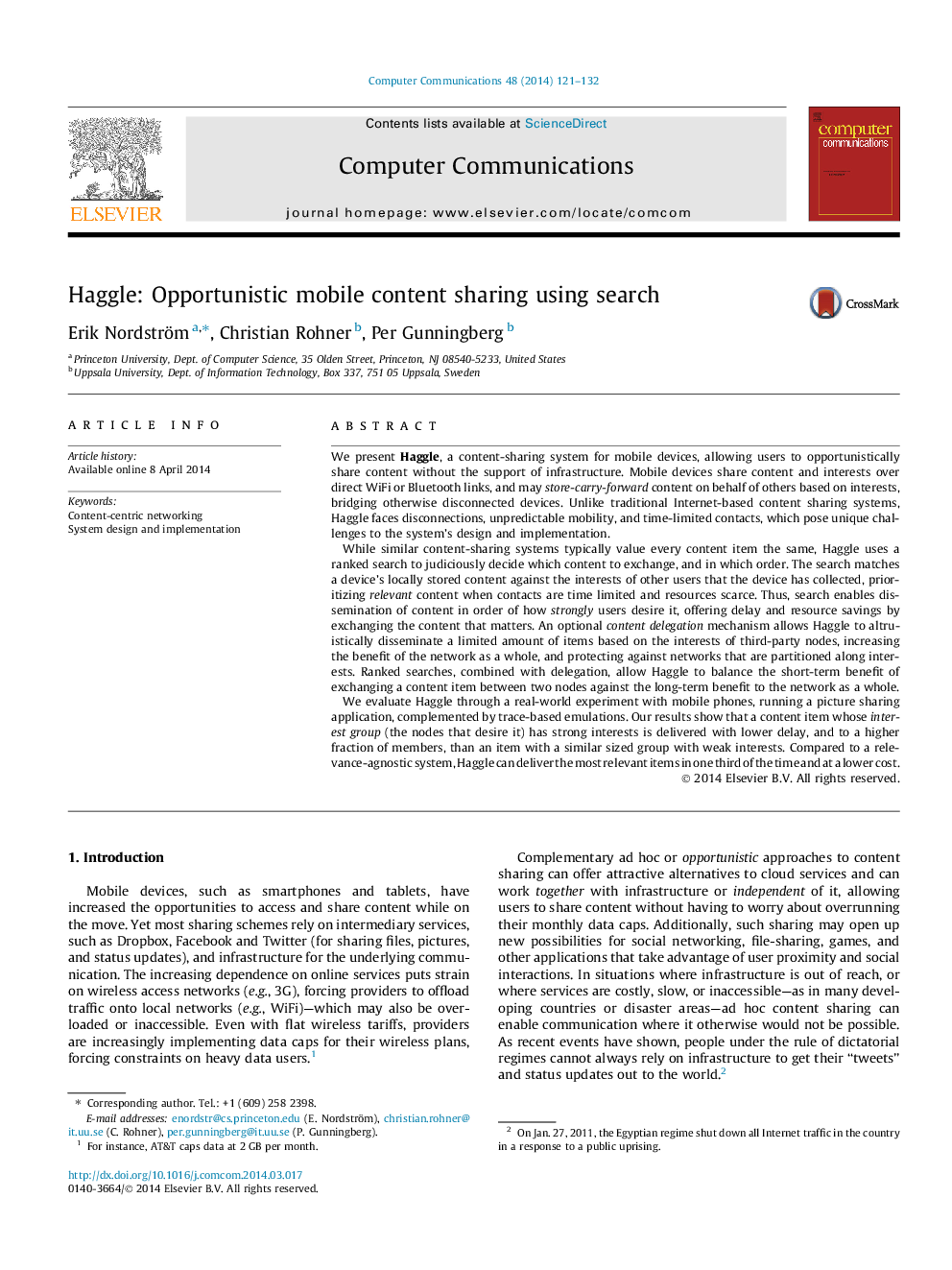| کد مقاله | کد نشریه | سال انتشار | مقاله انگلیسی | نسخه تمام متن |
|---|---|---|---|---|
| 445937 | 693271 | 2014 | 12 صفحه PDF | دانلود رایگان |

We present Haggle, a content-sharing system for mobile devices, allowing users to opportunistically share content without the support of infrastructure. Mobile devices share content and interests over direct WiFi or Bluetooth links, and may store-carry-forward content on behalf of others based on interests, bridging otherwise disconnected devices. Unlike traditional Internet-based content sharing systems, Haggle faces disconnections, unpredictable mobility, and time-limited contacts, which pose unique challenges to the system’s design and implementation.While similar content-sharing systems typically value every content item the same, Haggle uses a ranked search to judiciously decide which content to exchange, and in which order. The search matches a device’s locally stored content against the interests of other users that the device has collected, prioritizing relevant content when contacts are time limited and resources scarce. Thus, search enables dissemination of content in order of how strongly users desire it, offering delay and resource savings by exchanging the content that matters. An optional content delegation mechanism allows Haggle to altruistically disseminate a limited amount of items based on the interests of third-party nodes, increasing the benefit of the network as a whole, and protecting against networks that are partitioned along interests. Ranked searches, combined with delegation, allow Haggle to balance the short-term benefit of exchanging a content item between two nodes against the long-term benefit to the network as a whole.We evaluate Haggle through a real-world experiment with mobile phones, running a picture sharing application, complemented by trace-based emulations. Our results show that a content item whose interest group (the nodes that desire it) has strong interests is delivered with lower delay, and to a higher fraction of members, than an item with a similar sized group with weak interests. Compared to a relevance-agnostic system, Haggle can deliver the most relevant items in one third of the time and at a lower cost.
Journal: Computer Communications - Volume 48, 15 July 2014, Pages 121–132